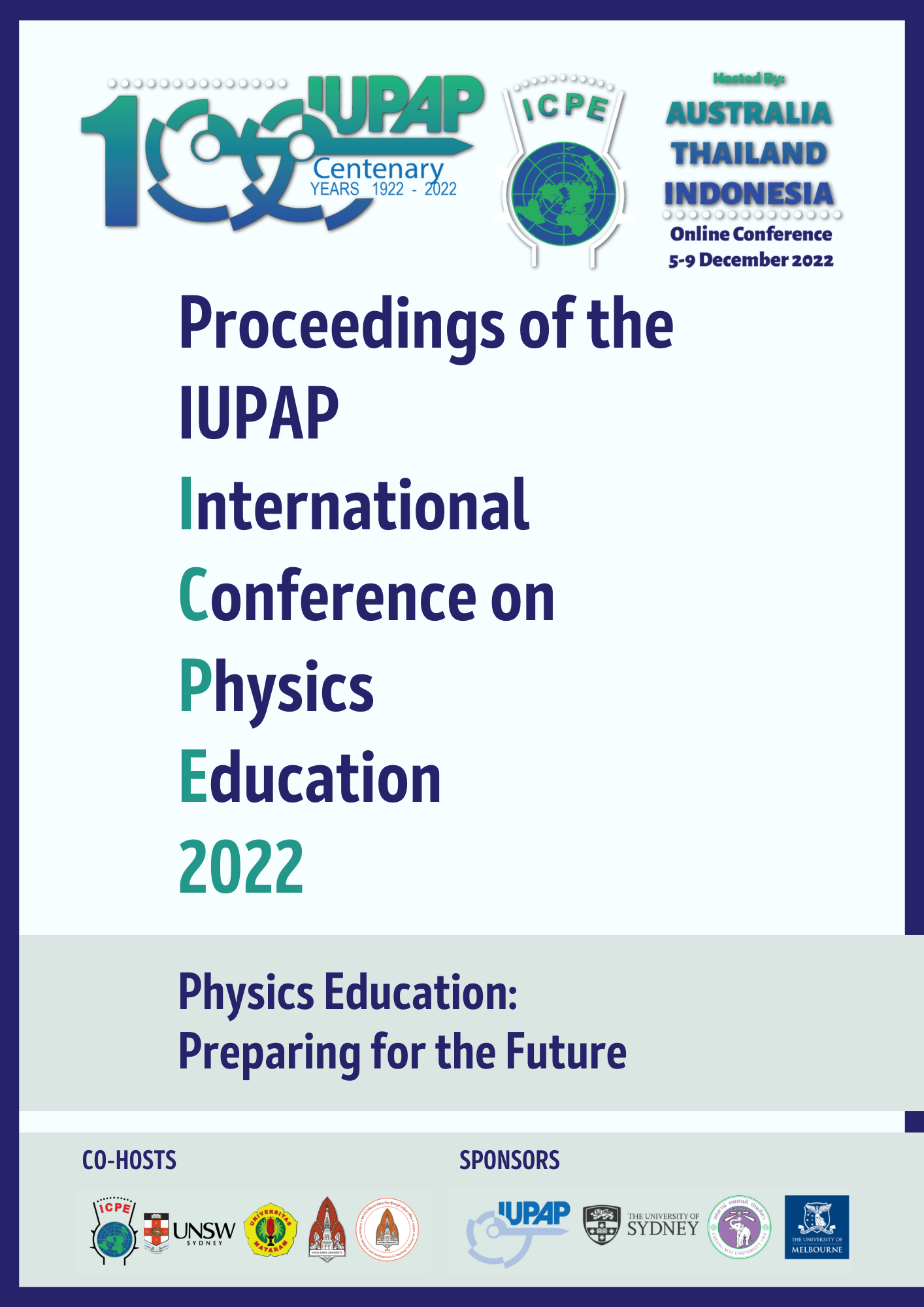The Digiphyslab Project: Digital physics laboratory work for on-campus and distance learning
Keywords:
experimental work, laboratory course, undergraduate students, digital technologiesAbstract
EXPERIMENTAL WORK AND COVID-19
With the emergence of the COVID-19 in spring 2020, physics teaching at university level needed to be rapidly transformed into a distance learning mode all around the world. While lectures and tutorials could rather easily be substituted with video conferences, self-study materials, or recorded videos, transforming a hands-on laboratory course into distance learning is much more challenging facing its traditional structures, manifold learning objectives, and the essential use of typical laboratory equipment (Hut et al., 2020; Jelicic et al., 2022; Werth et al., 2021).
DIGITAL TECHNOLOGIES AS A PROMISING APPROACH
A promising approach to develop laboratory courses especially, and to offer these courses in a distance learning mode, is to use digital technologies like smartphones. Smartphones are widely used, often cheaper than traditional equipment and allow convenient data collection and analysis by utilising built-in sensors. Thus, smartphones provide an affordable opportunity to conduct experiments beyond the laboratory. Additionally, they can enhance inquiry-based learning processes due to the reduction of students’ extraneous cognitive load (Becker et al., 2020).
THE DIGIPHYSLAB-PROJECT
The DigiPhysLab-project (Lahme et al., in press), co-funded by the European Union, follows this approach of utilising digital technologies like smartphones for physics experiments by developing 15 high-quality, competence-centered experimental tasks that can therefore be implemented either in on-campus or distance learning settings. All developed tasks are linked to a theoretical framework for design principles of experimental tasks and evaluated with students at the participating universities. The task instructions and further materials are published as open educational resources on the project website (www.jyu.fi/digiphyslab). In the presentation, the framework, the tasks, and the evaluation scheme are presented, and the usability of the tasks is discussed.
REFERENCES
Becker, S., Klein, P., Gößling, A., & Kuhn, J. (2020). Using mobile devices to enhance inquiry-based learning processes. Learning and Instruction, 69, 101350.
Hut, R. W., Pols, C. F. J., & Verschuur, D. J. (2020). Teaching a hands-on course during corona lockdown: from problems to opportunities. Physics Education, 55(6), 065022.
Jelicic, K., Geyer, M. A., Ivanjek, L., Klein, P., Küchemann, S., Dahlkemper, M. N., & Susac, A. (2022). Lab courses for prospective physics teachers: what could we learn from the first COVID-19 lockdown? What could we learn from the first COVID-19 lockdown? European Journal of Physics, 43(5), 55701.
Lahme, S. Z., Klein, P., Lehtinen, A., Müller, A., Pirinen, P., Susac, A., & Tomrlin, B. (in press). DigiPhysLab: Digital Physics Laboratory Work for Distance Learning. PhyDid B - Didaktik der Physik - Beiträge zur DPG-Frühjahrstagung - online 2022.
Werth, A., Hoehn, J. R., Oliver, K., Fox, M. F. J., & Lewandowski, H. J. (2021). Rapid Transition to Remote Instruction of Physics Labs During Spring 2020: Instructor Perspectives. arXiv. https://doi.org/10.48550/arXiv.2112.12253
Downloads
Published
Issue
Section
License
Authors who publish with the Proceedings of the International Conference on Physics Education 2022 agree to the following terms:
a) Authors retain copyright and grant the journal right of first publication with the work simultaneously licensed under a Creative Commons Attribution License (https://creativecommons.org/licenses/by/4.0/) that allows others to share the work with an acknowledgement of the work's authorship and initial publication in this journal.
b) Authors are able to enter into separate, additional contractual arrangements for the non-exclusive distribution of the journal's published version of the work (e.g., post it to an institutional repository or publish it in a book), with an acknowledgement of its initial publication in this journal.
c) Authors are permitted and encouraged to post their work online (e.g., in institutional repositories or on their website) prior to and during the submission process, as it can lead to productive exchanges, as well as earlier and greater citation of published work (See The Effect of Open Access - http://opcit.eprints.org/oacitation-biblio.html).
Privacy Statement The names and email addresses entered in the Proceedings of the International Conference on Physics Education 2022 site will be used exclusively for the stated purposes of this journal and will not be made available for any other purpose or to any other party.
